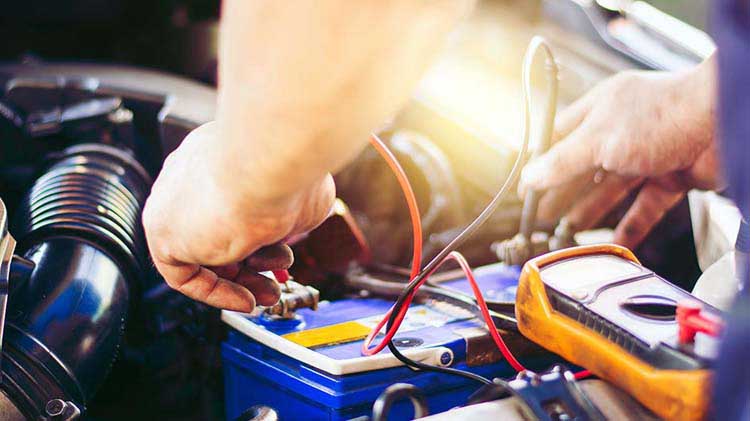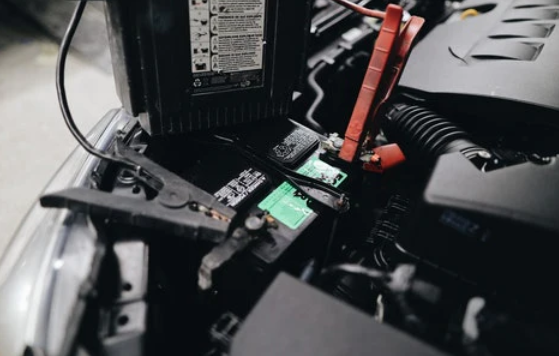Exploring the Longevity of a 100Ah LiFePO4 Lithium Battery
Introduction:
Lithium iron phosphate (LiFePO4) batteries have gained significant attention in recent years due to their high energy density, long cycle life, and increased safety compared to other lithium-ion battery chemistries. In this article, we will delve into the longevity of a specific LiFePO4 battery with a capacity of 100Ah, discussing its lifespan and factors that can influence its performance and overall longevity.
LiFePO4 Battery Longevity:
LiFePO4 batteries are known for their exceptional cycle life, which refers to the number of charge-discharge cycles a battery can undergo before its capacity drops below a certain threshold. Unlike other lithium-ion batteries, LiFePO4 chemistry exhibits a slower capacity fade over time, resulting in a longer lifespan.
Factors Affecting Longevity:
1. Depth of Discharge (DoD): The depth of discharge refers to the amount of battery capacity utilized during each cycle. Generally, a lower DoD leads to increased battery longevity. Maintaining a DoD below 80% is recommended for LiFePO4 batteries to maximize their lifespan.
2. Charge Rate: The rate at which the battery is charged can impact its longevity. Slower charging rates are preferable as they generate less heat and minimize stress on the battery, thus extending its lifespan.
3. Temperature: High temperatures can accelerate the aging process of batteries. LiFePO4 batteries are known for their excellent thermal stability, but extreme temperatures, especially prolonged exposure to high temperatures, can still degrade their performance over time. Operating the battery within the recommended temperature range of -20°C to 60°C is crucial for ensuring its longevity.
4. Overcharging and Overdischarging: Avoiding overcharging and overdischarging is essential for maintaining the longevity of any lithium-ion battery. Proper battery management systems (BMS) that monitor and prevent these conditions are crucial for preserving the lifespan of LiFePO4 batteries.
5. Manufacturing Quality: The quality of the battery cells and the manufacturing process can significantly impact the longevity of a LiFePO4 battery. Choosing a reputable manufacturer and ensuring stringent quality control measures are in place is crucial to obtaining a battery with optimal performance and longevity.

Benefits of LiFePO4 Batteries:
1. Safety: LiFePO4 batteries have a lower risk of thermal runaway and combustion compared to other lithium-ion chemistries, making them a safer option.
2. High Energy Density: LiFePO4 batteries offer high energy density, allowing for increased energy storage capacity. This makes them suitable for applications where long-lasting power is required.
3. Fast Charging: LiFePO4 batteries can be charged at higher rates compared to other lithium-ion batteries. This feature makes them ideal for applications that require quick recharge times.
Conclusion:
The 100Ah LiFePO4 lithium battery stands out for its impressive longevity, high energy density, and enhanced safety features. By adhering to proper usage guidelines, such as managing depth of discharge, charging rate, temperature, and investing in high-quality manufacturing, users can maximize the lifespan of their LiFePO4 batteries. With their excellent cycle life and other advantages, LiFePO4 batteries continue to gain popularity and find applications in various industries, including renewable energy storage, electric vehicles, and portable electronics.
-
 Having a reliable starter battery in your car is essential for ensuring that your vehicle starts up smoothly and efficiently, every time. A starter battery provides the necessary power to start your car engine and keep it running, making it an important component of your vehicle overall performance. In this article, we take a closer look at what a...En savoir plus
Having a reliable starter battery in your car is essential for ensuring that your vehicle starts up smoothly and efficiently, every time. A starter battery provides the necessary power to start your car engine and keep it running, making it an important component of your vehicle overall performance. In this article, we take a closer look at what a...En savoir plus -
 Introduction: In today's fast-paced and technology-driven world, reliable and efficient power solutions are essential for a wide range of applications. Whether it is for powering electric vehicles, renewable energy storage systems, or emergency backup systems, a high-capacity and durable battery is crucial. The 12V 200Ah LiFePO4 lithium battery is a cutting-edge power solution that offers exceptional performance and reliability. This...En savoir plus
Introduction: In today's fast-paced and technology-driven world, reliable and efficient power solutions are essential for a wide range of applications. Whether it is for powering electric vehicles, renewable energy storage systems, or emergency backup systems, a high-capacity and durable battery is crucial. The 12V 200Ah LiFePO4 lithium battery is a cutting-edge power solution that offers exceptional performance and reliability. This...En savoir plus -
 Power Up Your Devices with a 12V 200Ah LiFePO4 Lithium BatteryIn today\'s world, everyone relies on electronic devices to make their lives easier. Whether it\'s a smartphone, laptop, or tablet, we need these devices to stay connected with the world. However, these devices are only as good as their power source, and that\'s where a good battery comes in.If you\'re...En savoir plus
Power Up Your Devices with a 12V 200Ah LiFePO4 Lithium BatteryIn today\'s world, everyone relies on electronic devices to make their lives easier. Whether it\'s a smartphone, laptop, or tablet, we need these devices to stay connected with the world. However, these devices are only as good as their power source, and that\'s where a good battery comes in.If you\'re...En savoir plus -
 In the world of renewable energy, the search for reliable and long-lasting power sources is always ongoing. One such power source that has been gaining popularity in recent years is the 100Ah 12V LiFePO4 battery. This type of battery is considered to be a breakthrough in battery technology due to its advantages over traditional lead-acid batteries. The 100Ah 12V...En savoir plus
In the world of renewable energy, the search for reliable and long-lasting power sources is always ongoing. One such power source that has been gaining popularity in recent years is the 100Ah 12V LiFePO4 battery. This type of battery is considered to be a breakthrough in battery technology due to its advantages over traditional lead-acid batteries. The 100Ah 12V...En savoir plus -
 The rapid advancement in technology has increased the demand for efficient and reliable power sources. Among these sources, the 3.2V LiFePO4 battery has gained significant attention due to its unique characteristics and outstanding performance. This article aims to explore the features, advantages, and applications of the 3.2V LiFePO4 battery, highlighting its importance as a power source in various industries. ...En savoir plus
The rapid advancement in technology has increased the demand for efficient and reliable power sources. Among these sources, the 3.2V LiFePO4 battery has gained significant attention due to its unique characteristics and outstanding performance. This article aims to explore the features, advantages, and applications of the 3.2V LiFePO4 battery, highlighting its importance as a power source in various industries. ...En savoir plus -
 If you’re looking for a reliable, long-lasting battery to power your devices or equipment, look no further than a 100Ah LiFePO4 lithium battery. This advanced battery technology offers numerous benefits over traditional lead-acid batteries, making it the perfect choice for a wide range of applications. What is a LiFePO4 Lithium Battery? LiFePO4 stands for lithium iron phosphate, which...En savoir plus
If you’re looking for a reliable, long-lasting battery to power your devices or equipment, look no further than a 100Ah LiFePO4 lithium battery. This advanced battery technology offers numerous benefits over traditional lead-acid batteries, making it the perfect choice for a wide range of applications. What is a LiFePO4 Lithium Battery? LiFePO4 stands for lithium iron phosphate, which...En savoir plus -
 Are you tired of dealing with a dead battery when trying to start your vehicle? A lithium starter battery may be the solution you been looking for! Here why: First of all, lithium starter batteries are much lighter than traditional lead-acid batteries. This means you can reduce the overall weight of your vehicle without sacrificing power. Plus, the compact...En savoir plus
Are you tired of dealing with a dead battery when trying to start your vehicle? A lithium starter battery may be the solution you been looking for! Here why: First of all, lithium starter batteries are much lighter than traditional lead-acid batteries. This means you can reduce the overall weight of your vehicle without sacrificing power. Plus, the compact...En savoir plus

